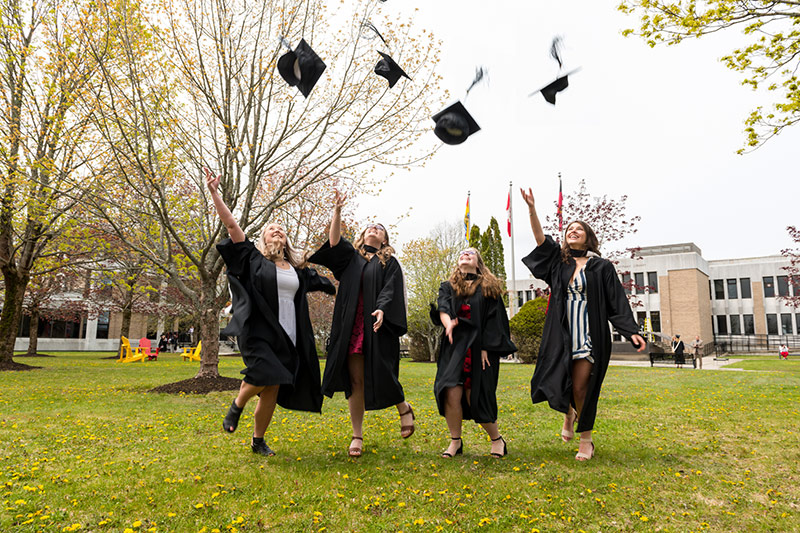NB-IRDT reports examine post-secondary graduate retention in province
Author: UNB Newsroom
Posted on Jun 8, 2021
Category: UNB Saint John , UNB Fredericton

Two new reports from the New Brunswick Institute for Research, Data and Training (NB-IRDT) at the University of New Brunswick have revealed that a majority of post-secondary graduates from New Brunswick remain in the province after they complete their programs.
The reports found that almost 70 per cent of New Brunswick university graduates and more than 90 per cent of community college graduates are still in New Brunswick a year after graduation. About 35 per cent of students from other provinces and international students remain in the province after they graduate.
The research team was able to answer questions about where graduates end up by using Statistics Canada data, accessed through the Canadian Research Data Centre Network, the New Brunswick University and Community College Registrar Databases, and the Citizen Database, which is the analytic version of the Medicare registry. The reports measure the retention of graduates of publicly funded colleges and universities in New Brunswick.
College and university graduates are among the most mobile Canadians, taking with them their human capital and potential earnings. Understanding what kinds of graduates are staying or leaving can help the provincial government develop targeted policies to encourage graduates to stay and contribute to the local economy, says Dr. Ted McDonald, director of NB-IRDT and the report’s principal investigator.
“These two companion reports really showcase the power of using linked data to answer questions of great importance to our province,” he says. “Analyzing datasets that link student graduation data from public New Brunswick community colleges and universities with residents’ Medicare health insurance information, and residents’ income tax information, we are able to see how many of our post-secondary graduates are staying in New Brunswick to live, and how much they earn if they do.
“We can also compare those who leave to those who stay based on where they are from, what they are studying, and where they are studying. This information is critical for understanding how New Brunswick’s post-secondary education sector is helping to grow and sustain our province.”
The report found the rate of graduates staying fluctuated by field of study. Students in health and related fields were more likely to stay in New Brunswick than others, with nursing graduates in particular having higher retention rates. Nursing graduate retention rates for more recent graduation years are substantially higher than earlier years.
Earnings after graduation also vary by field of study. On average, education graduates earn the most one year after graduation at around $52,000, while arts, humanities and communications graduates earn the least at around $21,000.
“Graduates of our post-secondary institutions are among our province’s greatest assets,” says Trevor Holder, Minister of Post-Secondary Education, Training and Labour. “These graduates are significant drivers of economic growth and prosperity in New Brunswick and critical to a sustainable workforce. It is for this reason we invest significantly in our post-secondary educational institutions. Ensuring results and a return on investment is critical to our province’s future and is a primary focus of our government. We are supportive of efforts to collect data and research on the experiences of graduates, including whether they stay and work in the province after graduation. These reports provide valuable insights on the factors that contribute to graduate retention, and by extension the impact this will have on our economy.”
The reports note that the discrepancy between retention rates for universities and colleges is most likely due to the composition of graduates by location of previous residence; approximately 90 per cent of college graduates are New Brunswick residents, whereas only about 64 per cent of university graduates are from New Brunswick.
Media contact: Kelsey Pye
